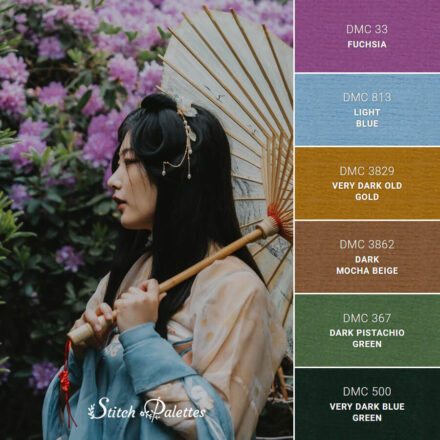Introduction to Hanfu
Hanfu, the traditional attire of the Han Chinese, is a symbol of Chinese culture and history. Its intricate designs and vibrant colors reflect the rich heritage and aesthetic values of ancient China. This article will take you on a journey through the colors of Hanfu and explore their cultural significance.

Red – Symbol of Prosperity and Happiness
Red is the most auspicious color in Chinese culture, representing fortune, joy, and celebration. Traditionally, Hanfu in red is worn during festivals and special occasions, such as weddings and the Chinese New Year, to bring good luck and happiness to the wearer.

Blue – Embodiment of Wisdom and Loyalty
Blue in Hanfu signifies wisdom, loyalty, and stability. It was often chosen by scholars and officials in ancient China to demonstrate their intellectual pursuits and commitment to their duties. The color blue also symbolizes the vastness of the sky and the depth of the ocean, reflecting the boundless nature of knowledge and virtue.

Green – Sign of Growth and Harmony
Green is the color of life and renewal in Hanfu. It symbolizes growth, fertility, and harmony with nature. Wearing green Hanfu is believed to bring balance and tranquility to the wearer’s life, as well as promote a connection with the natural world.

Yellow – Imperial Power and Nobility
Yellow is a color of great significance in Chinese history, as it was reserved for the emperor and symbolized imperial power and nobility. In Hanfu, yellow represents the center of the universe and the earth, embodying the authority and grandeur of the imperial court.

Conclusion
The colors of Hanfu are more than just visual elements; they carry deep cultural meanings and historical significance. Understanding these colors allows us to appreciate the rich tapestry of Chinese culture and the artistry of Hanfu design. As we journey through the colors, we gain a deeper connection to the traditions and values that have shaped China’s past and continue to influence its present.






